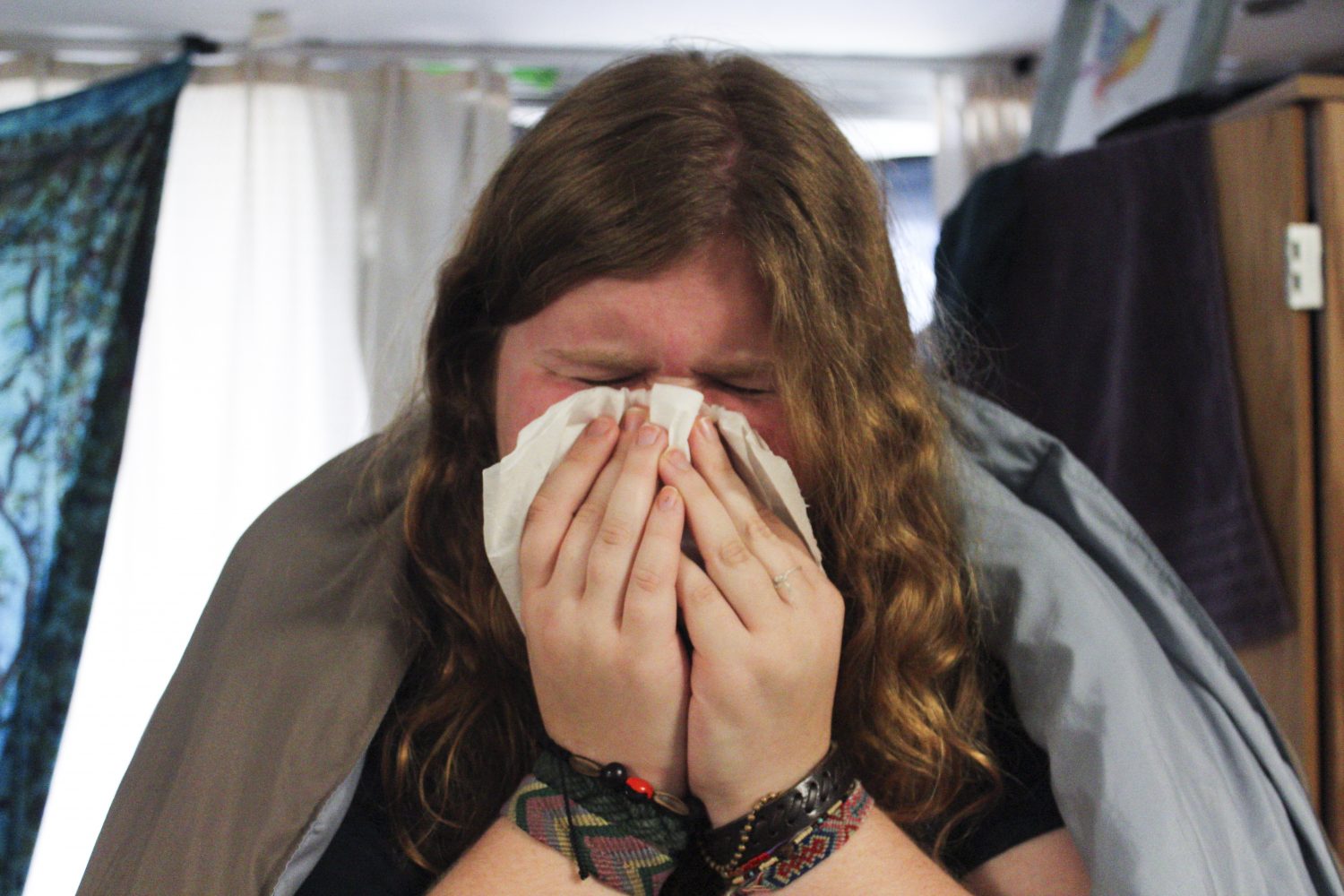Photo by Sarah Vincii |CIGAR| Students and researchers chime in on the best way to combat the common cold.
Getting a cold is an inevitable part of being an adult, and sharing a university campus with over twenty thousand other students, faculty and staff, the chances of getting a cold are significantly increased.
The University of Rhode Island’s Health Services recommends “resting, drinking plenty of fluids, taking acetaminophen, [and] using a Saline nasal spray,” to fight the symptoms of a cold.
Teresa Nocera, a nursing student, fights her colds by “getting a big water bottle…bringing it everywhere with me, so it forces me to drink lots of fluids. Watching Netflix in bed is great for relaxing…and taking naps and going to bed early!”
First-year student Nick Tansino gets over his colds by, “drinking hot tea with lemon.” Tansino even uses “detox water, water with lemons and limes, in his room.”
Julia Austin, a student here on campus, uses “DayQuil all day, and NyQuil all night.”
According to the Center for Disease Control and Prevention, the best way to treat the symptoms of a cold is to use “over-the-counter medicines to help ease symptoms.” The CDC reminds that these over-counter medicines will not make the cold go away any faster. Similarly, the use of antibiotics might “make it harder for your body to fight future bacterial infections if you take them unnecessarily.”
Although there are many different cold remedy products available at pharmacies and with a doctor’s prescription, some decide to use more homeopathic way to treat colds.
John-Ryan Mazzarelly, a first-year student, says that he remembers his mom “putting garlic in her socks… to draw the toxins out.”
The effectiveness of these alternative treatments is up for debate. Nevertheless, these many methods work for some individuals.
According to the World Health Organization, the best way to deal with the cold and flu season is to prevent it in the first place.
The CDC recommends that we frequently wash our hands and limit our contact with others germs.
However, research from the University of Wisconsin professor Chidi Obasi, reveals that stress can also make you more susceptible to colds and the flu. This study discovered that mindfulness meditation reduced the frequency, length and strength of colds by 35 to 60 percent.
Moderate exercise has also been recommending to prevent colds, because it encourages the production NK cells, nicknamed the “natural killer cells,” a type of white blood cells which play an important role in the immune system.
According to the Guardian, what we know as the common cold is a not a single virus pathogen. In reality, it is more than 200 viruses that provoke symptoms of a cold.
This is why scientists have not be able to create vaccine or drug to prevent and cure the common cold. The common cold is a collection several viruses.
The best way to prevent getting a cold and spreading germs is to use the basic techniques of frequently washing our hands, avoiding touching things in public settings, exercising and managing stress with meditation. Together these can help prevent colds and keep us all healthier through the cold winter.

